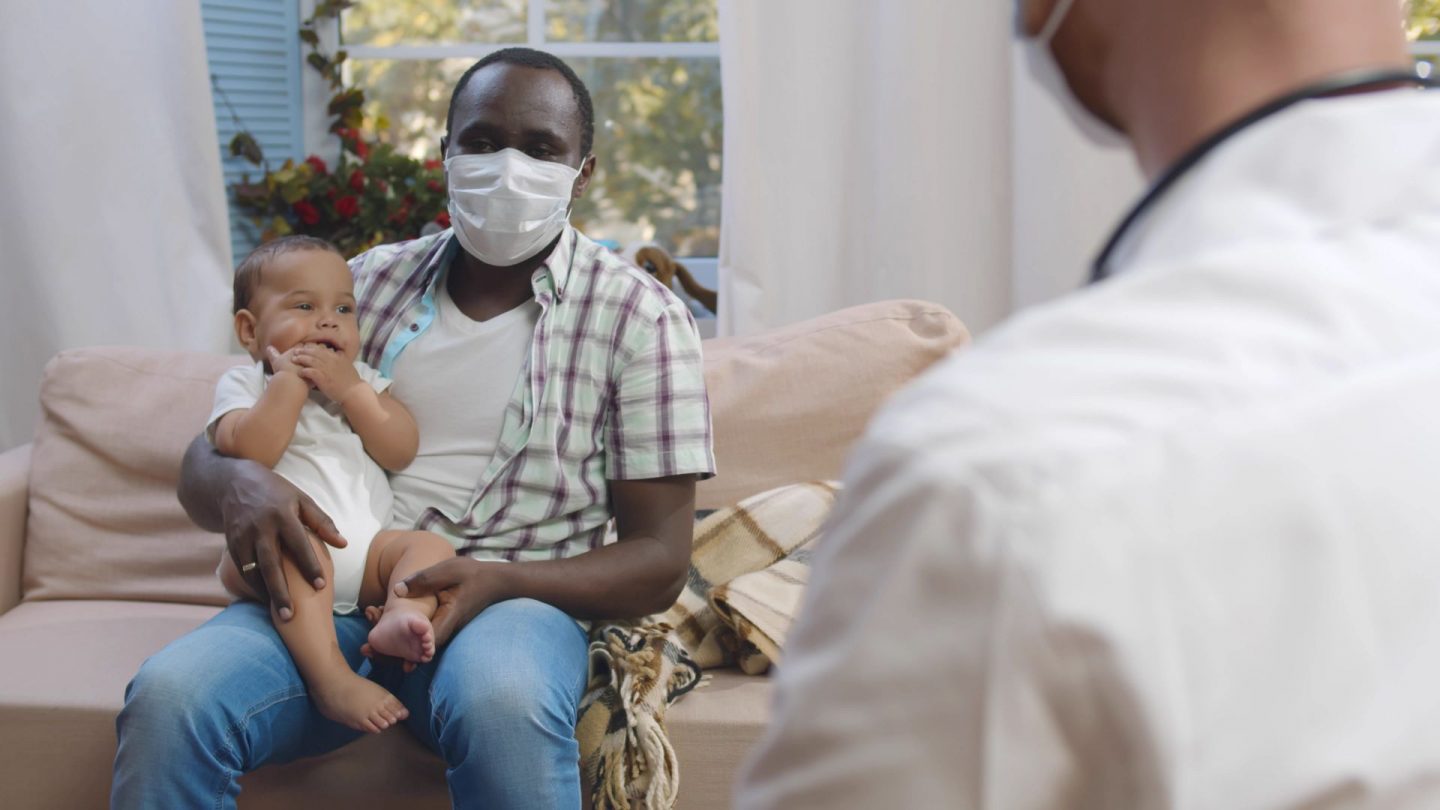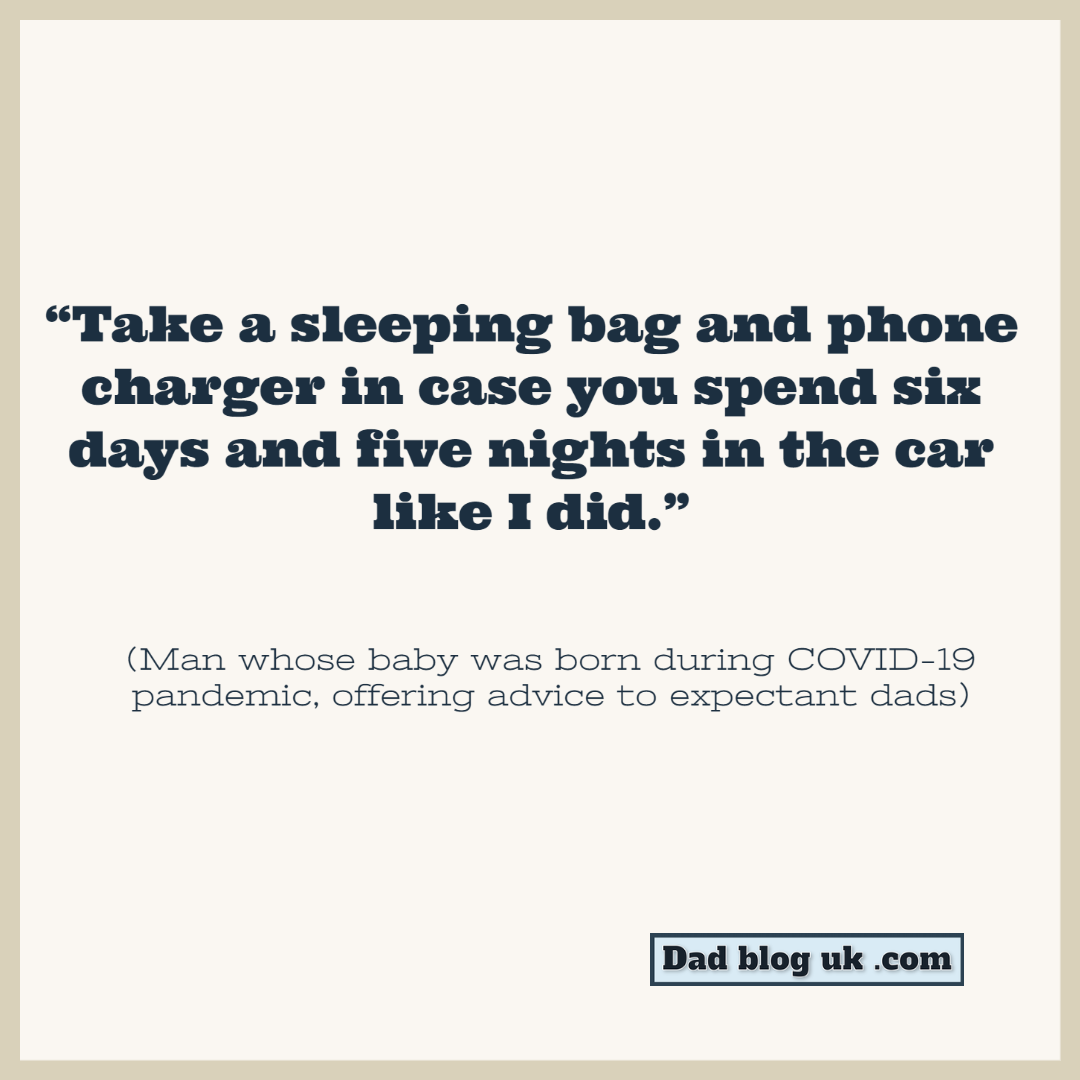Here’s some advice for any expectant father dashing to hospital with a partner who is in labour. It comes from a dad who whose child was born during the COVID-19 pandemic: “Take a sleeping bag and phone charger in case you spend six days and five nights in the car like I did.” This kind of experience is the reality for many dads in the pandemic.

That comment vividly demonstrates the impact the pandemic has had on expectant dads. Ongoing research from the Fatherhood Institute has shown that COVID-19 restrictions have resulted in men being frozen out antenatal appointments and scans and being unable to make decisions about care with their partner. In some cases dads are not even present at the birth.
Who cares for dads in the pandemic? This is a massive global problem.
It’s hardly surprising that hospitals have restrictions in place to limit the spread of COVID-19. I’d even go so far as to say that we’ve all had to make sacrifices and expectant dads shouldn’t expect special treatment.
The restrictions that are in place, however, are being inconsistently applied. There’s also a real concern that the progress in getting men involved with their families and children over recent decades could start going backwards.
The Fatherhood Institute’s research has also shone a light on one other group of individuals that is being adversely impacted by COVID restrictions. The group in question? Pregnant women.
Locked Down: Locked Out: New Fatherhood and COVID-19
The Fatherhood Institute’s research study is called Locked Down: Locked Out: New Fatherhood and COVID-19. It was launched in August with and has involved surveys and interviews with expectant mums, expectant dads and health professionals. As I said at the start, it’s an ongoing piece of research so the final findings are some way off from being published.
Early-stage findings were made public at the recent All Party Parliamentary group on Fatherhood meeting which took place earlier this week via Zoom (this is 2020 after all). The findings were presented by Katherine Jones, one of the Fatherhood Institute’s joint Chief Executives.
Jones set the scene by explaining that prior to the pandemic, 90% of fathers attended their child’s scan appointments. Since COVID-19 struck, 80% of the NHS trusts surveyed across the UK have stopped men from attending hospital until their partner is in active labour.

Of the father’s questioned for the research, 84% said this had left them less able to support the mother. If that wasn’t bad enough, 65% said they felt less well prepared to be a father having missed out on the antenatal appointments, scans, discussions with midwives and so on.
Interestingly, some NHS trusts have already taken action and relaxed some rules allowing fathers to have more involvement in the pregnancy and birth. Nonetheless, each individual NHS trust is responsible for implementing rules so what’s been permitted in one hospital might not be permitted in another. Added to that, NHS trusts in Scotland and Wales has been more liberal than those in England, so there is also a geographical divide in the way men have been treated.
The impact on mothers
The impact on dads is acute, but there is a huge impact on mums too. Mums reported feeling isolated as they were preparing to give birth without their child’s father being present.
Some mums said they felt uncomfortable as they were making decisions about the birth without consulting the father. In one shocking example, a mum was told her child was stillborn and had to return to the father and break the news to him without anyone else there to provide support.
Real threat we could go backwards
As Jones stressed at the start of her presentation, the key to having an involved father is to have him involved from the very earliest days of a child’s life. A dad who is involved from the start, usually stays heavily involved, even if mother and father separate. An involved father often produces children who have better academic outcomes, less likely to be involved in crime and to have better mental health.
An unfortunate, possible outcome of excluding men from antenatal appointments, scans and the labour ward is that they may not form the bond with their children that a dad of children born pre-pandemic would have. There’s a very real possibility that a cohort of children are being born to men whose approach to fatherhood could be more reminiscent of dads from the 1960s or 1970s when they were aloof and less interested in their kids or family life.
Advice for dads in the pandemic and some reflections on Locked Down Locked Out research
Jones concluded by providing some advice for dads. She said dads and their partners should write to hospitals stating that both mum and dad would be present for scans and antenatal appointments. Apparently couples who have done this have won themselves some concessions.
She also said that in these bizarre times, dads should make their own birth plan alongside their partner’s. She also stressed that it was very important for dads to think long and hard about who could support them during this difficult time.
Speaking for myself, I found some of what Jones said to be very hard to listen to. I simply can’t imagine being unable to attend my kids’ scans or antenatal appointments. I was at every single one and wouldn’t have wanted it any other way.
I also can’t imagine missing the birth. I had to intervene during the birth of my first child to ensure my wife got the treatment she wanted. It wouldn’t have happened without me speaking up and I just find myself thinking of all the women giving birth without someone to support them or speak up for them.
As for the All Party Parliamentary Group (APPG) on Fatherhood, it was great to see it back in action. There are APPG’s on all sorts of subjects and MPs from various parties are involved. In the case of the APPG on Fatherhood, it is co-chaired by Labour MP and former Cabinet Minister David Lammy, a formidable character who you definitely want to be on your side in any argument. The other co-chair is Steve Double, Conservative MP for St Austell and Newquay.
The APPG on Fatherhood hadn’t convened for a couple of years because of the various General Elections, not to mention Brexit and the COVID-19 pandemic. I’m glad to see it’s back and the quality of Jones’ presentation and the issues it addressed shows how much dads need this kind of representation at a Government level.
Before you go…
Please do listen to the podcast interview I recently did with Phil Norris. Phil is a married dad of two and his second son was born in September. I spoke to him about his experiences of being a ‘lockdown dad.’ Alternatively, you can read an abridged version of the interview here.







7 thoughts on “Locked Down, Locked Out: Dads in the pandemic”
Really interesting read John.
I’d have hated it if I couldn’t be there for the birth of my kids. I feel for the many fathers who weren’t. Birthing partners/fathers play a vital roll in the birthing process. I had to intervene with my youngest birth before my wife became critically ill.
Yes, must be very odd indeed being completely frozen out of the process until the very last moment. I can’t imagine it, it would just be so foreign com pared to the experience I had. I can appreciate things going a bit awry at the beginning of the pandemic but lessons do need to learned and acted upon.
Very interesting read John. I cannot begin to imagine the experience and journey some Dads have had going through this during Covid19.
With all my children I have attended every appointment and scan and been present to support my partner from the start to finish during labour.
It must be so hard and have a big impact on not only mens mental health and well being with the added stress and worry of been out of the equation so to speak but also the preparation of becoming a father along with the bonding process with the child during the pregnancy.
I sure look forward to seeing further results from this campaign as they are released in the future.
Like you Eddie, I simply cannot compute what it would be like to be frozen out of the pregnancy until the very end. It would impact on men’d readiness and mental health and as this research shows, the impact on women is just as serious. Lessons must be learned!
I feel quite lucky, we had our second in November and whilst I didn’t attend any of the appointments I was able to be there for the birth and was able to stop with my wife and newborn for a couple of hours.
I would be interested to know how this compared with your first child? Did you not feel left out at all? Then again, while I feel more could be done for mums and dads in this situation, it is a tough call t make because some restrictions have to remain in place. That’s simply common sense.
Completely different. As we are considered older parents we had more scans which I was able to attend. My wife then suffered complications and I slept on the floor of the hospital for five days to be with her and our son.
Oddly, I didn’t feel left out on the second occasion maybe because I was looking after out son during visits.